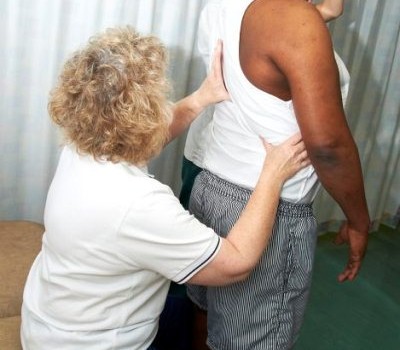Did you know around 10 million working days were lost in the United Kingdom last year due to back pain?
Bad posture while sitting or standing, bending awkwardly and lifting equipment incorrectly are just some of the reasons why back pain can occur. Placing too much pressure on your back too often can lead to long-term back problems.
If you have any issues and are struggling to cope with the pain, see your GP who may refer you to a specialist if your back pain lasts for more than six weeks.
Although backache in the lower back is most common, it can be felt anywhere along your spine from your neck down to your hips. In the majority of cases, back pain will get better within 12 weeks.
Treating back pain will depend on:
- How long you have had backache.
- How severe the back pain is.
- Your individual needs.
Backache which lasts less than six weeks can be treated with painkillers and home treatments. Home treatments can range from having a hot bath, placing a hot water bottle on the affected area or putting an ice pack on the area affected. If you are going to use an ice pack, wrap the frozen pack in a wet cloth before applying it to the affected area as you could end up with a cold burn if you place the ice directly on your skin.
Marie Adams, physiotherapist at Solihull Hospital, says: “Exercise is a great way of preventing back pain. Walking and swimming help strengthen muscles at the back without putting any strain on it. Doing yoga can also help improve the flexibility of your back muscles.
“To help maintain a good posture, make sure you stand upright and balance your weight on both feet. Whilst sitting down, your knees and hips should be level and your feet should be flat on the floor. Remember to keep your back straight as well when you sit down.
“When it comes to handling objects, you should consider whether you can manage the lift and if in doubt get help. Avoid twisting your back and keep your head up once you have the load secure.
“Changing your sleeping position can help ease back pain and if you sleep on your back, putting a pillow under your knees will enable you to maintain the normal curve of your lower back.”
For more information on preventing back pain, visit the Trust’s physiotherapy website (http://therapies.heartofengland.nhs.uk/physiotherapy).







